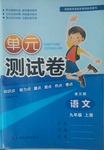题目内容
15.Bad news sells.If it bleeds,it leads.No news is good news,and good news is no news.Those are the classic rules for the evening broadcasts and the morning papers.But now that information is being spread and monitored(监控) in different ways,researchers are discovering new rules.By tracking people's e-mails and online posts,scientists have found that good news can spread faster and farther than disasters and sob stories."The‘if it bleeds'rule works for mass media,"says Jonah Berger,a scholar at the University of Pennsylvania."They want your eyeballs and don't care how you're feeling.But when you share a story with your friends,you care a lot more how they react.You don't want them to think of you as a Debbie Downer."
Researchers analyzing word-of-mouth communication-e-mails,Web posts and reviews,face-to-face conversations-found that it tended to be more positive than negative(消极的),but that didn't necessarily mean people preferred positive news.Was positive news shared more often simply because people experienced more good things than bad things?To test for that possibility,Dr.Berger looked at how people spread a particular set of news stories:thousands of articles on The New York Times'website.He and a Penn colleague analyzed the"most e-mailed"list for six months.One of his first finds was that articles in the science section were much more likely to make the list than non-science articles.He found that science amazed Times'readers and made them want to share this positive feeling with others.
Readers also tended to share articles that were exciting or funny,or that inspired negative feelings like anger or anxiety,but not articles that left them merely sad.They needed to be aroused(激发) one way or the other,and they preferred good news to bad.The more positive an article,the more likely it was to be shared,as Dr.Berger explains in his new book,"Contagious:Why Things Catch On."
12.What do the classic rules mentioned in the text apply to?A
A.News reports.
B.Research papers.
C.Private e-malls.
D.Daily conversations.
13.What can we infer about people like Debbie Downer?C
A.They're socially inactive.
B.They're good at telling stories.
C.They're inconsiderate of others.
D.They're careful with their words.
14.Which tended to be the most e-mailed according to Dr.Berger's research?B
A.Sports new.
B.Science articles.
C.Personal accounts.
D.Financial reviews.
15.What can be a suitable title for the text?D
A.Sad Stories Travel Far and Wide.
B.Online News Attracts More People.
C.Reading Habits Change with the Times.
D.Good News Beats Bad on Social Networks.
分析 人们常说"没有消息就是最好的消息",类似的说法只适合大众媒体,在网络普及的时代,好消息在网络上的传播速度比坏消息要快很多.
解答 ACBD
12.A 细节理解题,根据第二段The‘if it bleeds'rule works for mass media可知,像it bleeds这各传统说法适用于大众媒体,故选A.
13.C 推理判断题.根据"you care a lot more how they react"可知,你非常在乎朋友听完你讲的故事后的反应,根据"You don't want them to think of you as a Debbie Downer."可知,你不想被当作一个"Debbie Downer",说明指的是"一个不为他人考虑的人",故选C.
14.B 细节理解题.根据第三段"articles in the science section were much more likely to make the list than non-science articles"可知,科技类的文章比非科技类的更有可能被人们讨论,故选B.
15.D 标题判断.根据第一段"By tracking people's e-mails and online posts,scientists have found that good news can spread faster and farther than disasters and sob stories."可知,好消息在网络上传播得更快,影响更深远;说明文章主要讲的是好消息通过网络的传播,故选D.
点评 主旨大意题主要考查学生把握全文主题和理解中心思想的能力.根据多年的备考及高考实践,这类题目考察的范围是:基本论点、文章标题、主题或段落大意等.它要求考生在理解全文的基础上能较好地运用概括、判断、归纳、推理等逻 辑思维方法,对文章进行高度概括或总结,属于高层次题.
选择"主题"旨在考查考生是否掌握了所读文章的主要内容或主旨,通常用词、短语或句子来概括.常见的提问方式有:
1.What is the main/general idea of this text?
2.What is mainly discussed in this passage?
3.What is the text mainly about?
4.This text mainly tells us ________.
5.This passage mainly deals with _________.
6.The main idea of this passage may be best expressed as_________.
选择"标题"则是让考生给所读的文章选择一个合适的标题.通常标题由一个名词或名词短语充当,用词简短、精练.常见的提问方式有:
1.What would be the best title for the text?
2.Which of the following is the best/most suitable title for this text?
3.The best/most suitable title for this text would be ________.
4.The topic of this passage is _________.
不管是选择"主题"还是选择"标题",实质上都是要求考生从整体上理解语篇内容,找出贯穿语篇的主线;不管是何种体裁的文章,总是围绕一个主题来展开的.在试题设计上,3个干扰项内容一般在文章里或多或少都有涉及,但并非主要内容,需要注意甄别.

 阳光试卷单元测试卷系列答案
阳光试卷单元测试卷系列答案| A. | well | B. | good | C. | best | D. | better |
| A. | doesn't allow | B. | didn't allow | C. | isn't allowed | D. | won't allow |
-Thanks,but I think I ______ more attention to my stage manners during that time.( )
| A. | must pay | B. | should pay | ||
| C. | must have paid | D. | should have paid |
| A. | that | B. | when | C. | where | D. | which |
| A. | entitled | B. | had entitled | ||
| C. | was entitled | D. | has been entitled |
| A. | buy | B. | buying | C. | buys | D. | to buy |